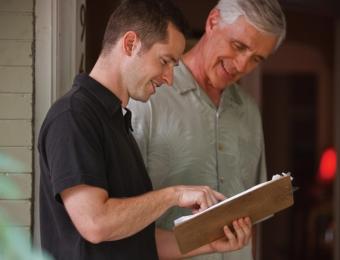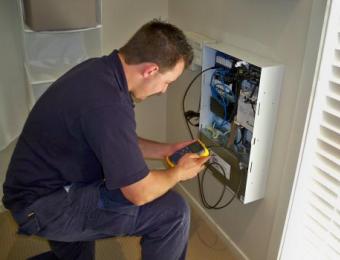
Buying and installing consumer home electronics in an effort to improve your house's comfort, convenience, security and functionality can be a confusing process. The Custom Electronic Design & Installation Association (CEDIA) offers these 10 tips to help you negotiate the minefield of creating a smart home.
1. Most importantly, choose a current CEDIA member. CEDIA members are qualified and always informed on and trained in the latest technologies and installation techniques; and engage them as early as possible.
2. Find someone who is prepared to listen to your needs and wishes as well as being prepared to achieve the end results you're after, rather than someone who is more interested in selling you particular brands or products.
3. Find a person or business you like and trust. The way to gauge if you can have confidence in your custom installer is to note how well they listen to you and if they take on board what you say. It’s also helpful to know whether or not they allow access to information on previous installations and clients.
4. Find someone who explains clearly about new technologies so you can make an informed choice about what type of facilities and systems you want; you don’t want to miss out on products because you weren’t aware - and by the same token, you don’t want to have technologies you don’t need forced on you.
5. You need a reputable company with qualified and efficient installers who are mindful of the fact that your house is your home, and who treat it with the respect it deserves.
6. Look at the product that has been recommended for your installation and check its quality. You want high quality gear and that can be verified from magazines or online sources.
7. You need someone who is happy to let you talk to the supplier of the product. This is a part of building trust and credibility and most suppliers are happy to answer questions.
8. Look for an installer who can install more than just audio and video components, or who has reliable affiliates who can handle these things. For example, you need people who are experienced in lighting, security, telephone systems and climate control if you want those systems installed. This is especially important if you are building a new home, because there will generally be fewer trades involved and you’ll get a better integrated system rather than a bunch of divergent and conflicting technologies.
9. The installer must allow clients personal contact throughout the whole process. It’s not helpful to choose someone who is unavailable and difficult to deal with.
10. You need to work with a business or person who can oversee everything in the project. You must also feel comfortable with their interpersonal skills.




